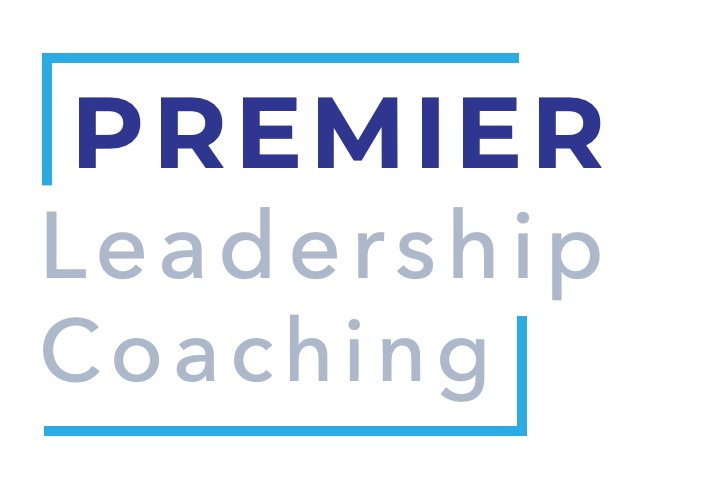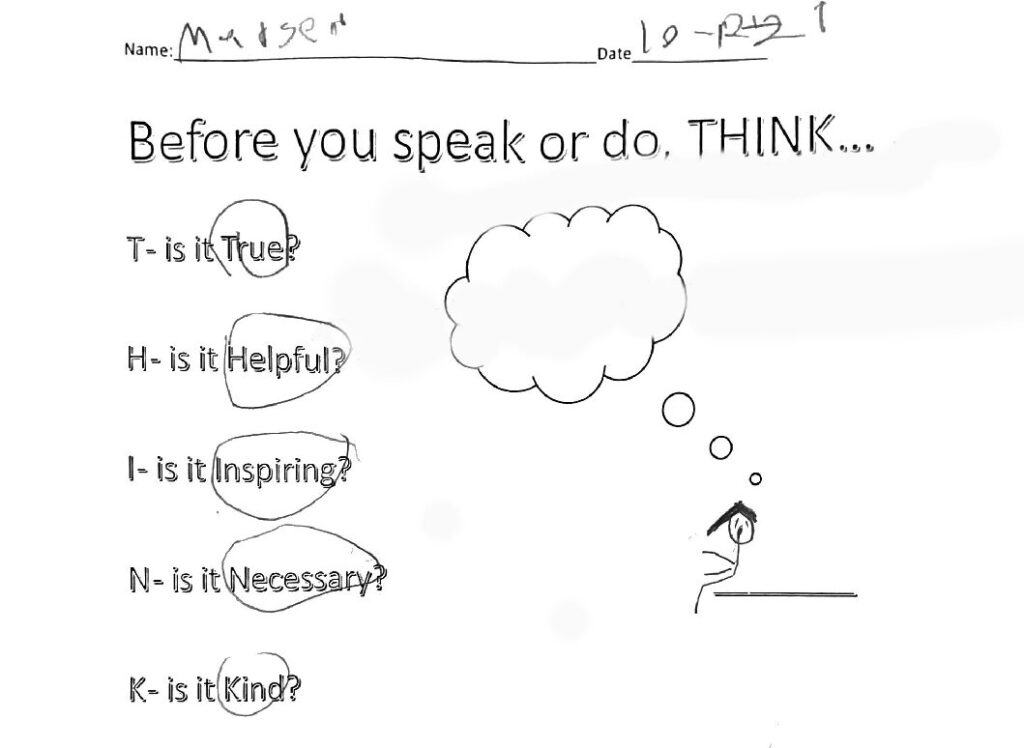Notice: Undefined index: file in /var/www/wp-includes/media.php on line 1763
Notice: Undefined index: file in /var/www/wp-includes/media.php on line 1763
Before You Speak or Do, THINK
For a long time now I have told my CEOs, “Everything you need to know about successful leadership you learned in kindergarten.”
Don’t cut the line, wait your turn, take turns, share, use nice words, don’t be a pig, don’t interrupt, raise your hand, do your best, give everything 100%, say sorry, don’t run in the halls, and wash your hands after you pee. Up until now, this theory of leadership of mine has been intuitive and cobbled together. While knowing it to be true, I haven’t had anything to point to – to offer up as proof. That is, until today.
This morning, like every morning (even Saturday and Sunday) the Hartleys were in “hair on fire” mode trying to get out the door. In the midst of the tumult, I needed to clean out my 6 year old’s take-home folder. In doing so, without meaning to, I stumbled upon evidence showing that it is indeed true that the most important leadership lessons are disseminated in elementary school – wisely, still on paper and still in pencil.
We say it all the time, “Think Before You Speak.” But we don’t do it. We are moving a mile a minute and the whole thinking thing slows us down. We lack discipline and self-control and blurting out requires neither and feels so good too. We love the sounds of our voices and nothing is wiser than the wisdom rolling and rolling off our tongue. All of those words make us feel so smart.
I like my son’s handout because it goes beyond the traditional wisdom of thinking before talking and provides an actionable framework for how to go about it. It gives concrete pointers and by doing so, the message lands more fully and is harder to forget. I have some favorites on this list of five items and I bet you do too (be sure to ping me and let me know).
For me, helpful, necessary, and kind are the stars. Helpful because there is a ton we can and do say but does any of it actually help anything? In my experience, once the dust settles a lot of what is said doesn’t do a single productive thing. It fills space, passes time, fluffs some ego, creates the illusion of getting things done, but isn’t particularly helpful. It doesn’t solve problems, it doesn’t boost people up, it doesn’t generate awesome solutions and, it doesn’t bring us closer together. The thing is said, the mouth is run, the damage is done, and then status quo.
Necessary is great because it gets to the talking for the sake of talking. Yes, you spoke, you added to the conversation but did you make a measurable contribution? Would the world have kept turning without you chiming in and adding your two cents? If the answer is yes, don’t say it. Skip it. You can even say it to yourself if you can’t keep the gem to yourself. For the second transactional flaw, coach to the CEO stars, Marshall Goldsmith lists “Adding too much value.” Basically, what Dr. Goldsmith is categorizing as a no-no is chiming in when it’s not necessary.
When I was little, when you were little, you were told, “If you don’t have anything nice to say, don’t say it at all.” When did we lose sight of that? At what point did that become wrong? Irrelevant? At what age did saying not nice things become OK? When did mean become an effective leadership style? For leaders who need to voice hard truths, I concede that revision is appropriate. The mantra should be something more like, “If you have something not nice to say, have the maturity, decency, and creativity to find a way to say it with kindness.” And here is the thing, if you can’t do that, maybe you aren’t qualified to run a company.
Here is why True, Helpful, Inspiring, Necessary, Kind is so important for leaders – not only will it save your butt when it matters, but it will be your life vest and your parachute when you are about to do more harm than good, like pissing off the talent so bad that they walk out the door, demotivating your team in the middle of a critical deadline, or silencing your most creative contributor when innovation is what is going to make the company.
We all lack EQ and when we couple an EQ deficit with speaking without thinking we get disaster. No one is going to tell you that you suck at EQ especially if you are the boss or control the other person’s livelihood in some way. So we bumble along with our poor EQ, speaking without thinking creating inefficiencies, missing opportunities, and burning bridges along the way.
But there is hope. I know because my son, Madsen, brought the cheat sheet home from school. Take a moment. Ask yourself five questions and if you say yes to all, feel free to talk away. But my guess is that more often than not the words about to be released into the universe are either not truthful, helpful, inspiring, necessary, or kind and are better left unsaid. It will be better for you, better for your company, and better for every single person around you.
HT Dr. Lexande for doing such powerful work with my boy and to my neighbor Vince for talking through these ideas with me and for being the embodiment of THINK, especially the kind piece.



Amen!
Thank you for this! It hits home for sure. I don’t know how many times a week I say these words to ME and to someone close to me. If you can’t say anything nice, don’t say anything at all.
It’s easy to say…. Yet, often difficult to do. Thankfully we’re all works in progress and we can make changes daily. Thanks again for sharing.
what’s EQ ?
Powerful, thank you!